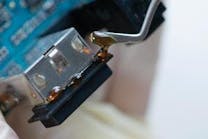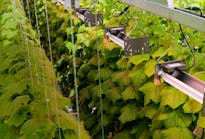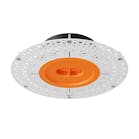NGOs applaud Commission’s move to turn the mercury lights out in the EU
Brussels 17 December 2021
The EEB and CLASP applaud the European Commission for adopting proposals that will phase-out all general purpose compact and linear fluorescent lamps (CFL and LFL) containing mercury in the coming two years.
Currently, the EU regulates mercury in light bulbs through the Restriction of Hazardous Substances (RoHS) Directive, by allowing mercury use in lighting via an exemption list. CFLs and LFLs have been tolerated so far because of the once limited availability of mercury-free alternatives.
For years the EEB, CLASP, Member States and experts have tirelessly campaigned to end mercury lamps as there are more efficient, mercury free Light Emitting Diodes (LEDs) widely available on European markets, making fluorescent lamps redundant. Already by end 2019, a study by CLASP and the Swedish Energy Council proved that “91-93% of fluorescent light fixtures in Europe can accept LED retrofits“.
Mercury is a well-documented neurotoxin that causes adverse effects to the developing brain, cardiovascular system, kidneys and thyroid glands. The World Health Organisation puts mercury in the top ten most problematic chemicals for public health.
The European Commission could have by law removed inefficient and toxic fluorescent lamps from sale as far back as 2018, when its own experts confirmed the legal criteria for a market ban under RoHS were fulfilled. Their availability until the end 2023 will still cost bill-payers an estimated over €16.8 million per day in lost efficiency savings for the next 2 years, according to recent NGO estimates.
Michael Scholand, Senior Advisor with CLASP Europe said, “While the Commission’s decision has been delayed several years, the savings from this measure are still significant and will benefit EU citizens and businesses. Between 2023 and 2035, we calculate a net savings to the EU of €18.2 billion Euros, as well as avoiding 1.8 metric tonnes of mercury from the fluorescent lamps. Furthermore, over 190 TWh of electricity will be saved, avoiding 55 million metric tonnes of CO2 and contributing to the EU’s COP26 CO2 reduction targets.”
Elena Lymberidi-Settimo, Policy Manager at the EEB for ‘Zero Mercury’ Campaign said:
“The European Parliament must now follow through this big step forward and allow rapid final adoption of a ban on these mercury inefficient lamps. At the same time, the EU should follow its commitments set out in the European Green Deal, Chemicals Strategy for Sustainability and Zero Pollution Action Plan and support the African region’s proposal at the next session of the Minamata Convention’s Conference of the Parties in March 2022, to prohibit the manufacture and export of most fluorescent lights by 2025.”
To the regret of NGOs, progress towards phasing out other mercury added lamps, such as high-pressure sodium (orange streetlights) and metal halide lamps, has not yet been made. The amendments to the RoHS Directive will still allow these mercury-containing lamps to remain on the market for the next 3-5 years at a minimum.
About the European Environmental Bureau
The European Environmental Bureau (EEB) is Europe’s largest network of environmental citizens’ organisations, standing for environmental justice, sustainable development and participatory democracy. Our experts work on climate change, biodiversity, circular economy, air, water, soil, chemical pollution, as well as policies on industry, energy, agriculture, product design and waste prevention. We are also active on overarching issues as sustainable development, good governance, participatory democracy and the rule of law in Europe and beyond. We have over 160 members in over 35 countries.
About CLASP Europe
CLASP is a non-profit, non-governmental organisation established in 1999 that focuses on appliance & equipment energy performance and quality. CLASP works to mitigate and adapt to climate change and expand access to clean energy. Working in Europe since 2009, CLASP supports the European Commission and Member States in establishing ambitious ecodesign and energy labelling regulations. CLASP has conducted pioneering work on quantifying the CO2 savings potential of applying circular economy principles to ecodesign and have been involved in various projects related to market surveillance and market verification and enforcement in Europe.
Contact:
Elena Lymberidi-Settino - Policy Manager Zero Mercury Campaign
International co-ordinator Zero Mercury Working Group
European Environmental Burea





